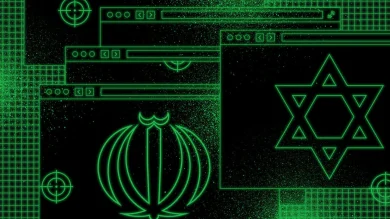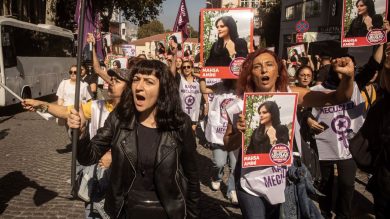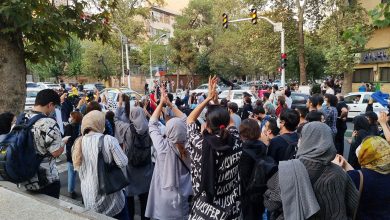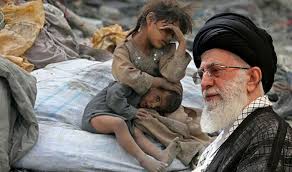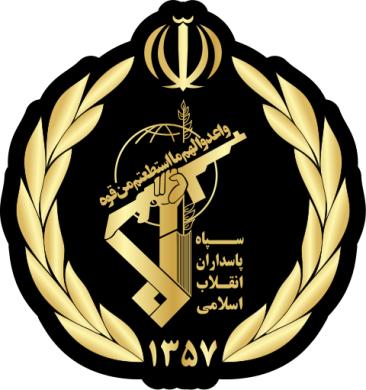Iranian activists face severe repression under the Islamic Revolutionary Guard Corps (IRGC) and the Iranian regime. From protesters and journalists to women’s rights defenders and human rights advocates, these individuals risk arrest, torture, and execution for demanding freedom, democracy, and human rights. Despite brutal crackdowns, the Women, Life, Freedom movement and ongoing protests prove that Iranians refuse to be silenced.
The international community plays a crucial role in supporting Iranian activists. While the regime controls state media, security forces, and digital censorship, global citizens, organizations, and governments can help amplify their voices and pressure Iran’s leadership. This guide outlines practical steps that individuals, organizations, and policymakers can take to support Iranian activists and promote human rights in Iran.
1. Understanding the Struggles of Iranian Activists
A. The Risks Iranian Activists Face
Iranian activists are subjected to:
• Arbitrary arrests and imprisonment – Thousands of protesters and dissidents are held in IRGC-controlled prisons, often without fair trials.
• Torture and execution – Political prisoners face beatings, electric shocks, and sexual violence, with many sentenced to death for fabricated charges.
• Digital surveillance and censorship – The regime monitors internet activity, blocks websites, and imprisons activists for online dissent.
• Targeting of families – The Iranian government pressures activists by harassing or imprisoning their family members.
B. Who Are Iran’s Leading Activists?
Many activists have become symbols of resistance, including:
• Narges Mohammadi – A jailed human rights defender who continues to advocate for women’s rights and political freedom.
• Nasrin Sotoudeh – A human rights lawyer defending women arrested for defying hijab laws, sentenced to 38 years in prison.
• Masih Alinejad – An exiled journalist leading digital activism campaigns like “My Stealthy Freedom” and “White Wednesdays” against Iran’s mandatory hijab laws.
• Jailed protest leaders – Thousands of students, workers, and activists imprisoned after the Women, Life, Freedom protests in 2022.
Supporting Iranian activists means protecting their voices, demanding their release, and amplifying their fight for justice.
2. How Global Citizens Can Support Iranian Activists
A. Raise Awareness and Amplify Iranian Voices
• Share their stories on social media – Use platforms like Twitter, Instagram, and Facebook to highlight human rights violations.
• Follow and support independent Iranian journalists – Engage with news sources such as Iran International, BBC Persian, and Radio Farda.
• Use protest hashtags – Help trending movements like #WomenLifeFreedom, #MahsaAmini, and #StopIRGC reach global audiences.
B. Join or Organize Protests in Your Country
• Participate in rallies and demonstrations supporting Iranian activists in cities worldwide.
• Lobby your local representatives to take stronger action against the IRGC and Iranian regime abuses.
• Coordinate with human rights organizations to stage public awareness campaigns.
C. Support Political Prisoners and Their Families
• Advocate for the release of jailed activists by signing petitions and open letters to governments and the UN.
• Donate to legal aid funds supporting Iranian political prisoners.
• Follow organizations like Amnesty International and Iran Human Rights, which track arrests and executions.
D. Counter Iran’s Digital Censorship
• Provide Iranians with VPNs and secure communication tools to bypass internet restrictions.
• Support initiatives like Starlink, which aim to restore internet access in Iran.
• Report Iranian government disinformation online and help fact-check regime propaganda.
E. Support Economic and Diplomatic Pressure on the Regime
• Demand stronger sanctions targeting IRGC-controlled businesses and financial networks.
• Call on your government to designate the IRGC as a terrorist organization.
• Pressure companies and banks to cut ties with Iran’s corrupt financial system.
3. How Organizations and NGOs Can Help
A. Document and Publicize Human Rights Abuses
• NGOs should collect evidence of human rights violations for international courts.
• Publish reports on prison abuses, executions, and gender-based oppression.
• Collaborate with Iranian dissident groups to provide accurate on-the-ground updates.
B. Provide Safe Digital Tools for Activists
• Develop encrypted apps and secure messaging platforms to protect Iranian users.
• Offer training on cybersecurity to Iranian journalists and activists.
• Support alternative news platforms that bypass Iran’s media censorship.
C. Pressure Governments and the UN to Take Action
• Advocate for sanctions on Iranian officials responsible for human rights abuses.
• Demand that governments and the UN Human Rights Council investigate IRGC crimes.
• Push for stronger refugee protections for Iranian activists fleeing persecution.
4. How Governments and Policymakers Can Support Iranian Activists
A. Recognizing and Isolating the IRGC
• The EU, UK, and Canada must designate the IRGC as a terrorist organization.
• More countries should impose travel bans and asset freezes on IRGC officials.
• Crack down on Iranian diplomatic missions acting as espionage hubs for the regime.
B. Strengthening Targeted Sanctions
• Expand sanctions on IRGC-controlled businesses to cut off financial networks.
• Prevent Iranian government hackers and cyber units from accessing Western tech.
• Restrict Iran’s ability to export weapons to terrorist groups.
C. Offering Refugee Protections to Iranian Dissidents
• Provide emergency visas and asylum to activists fleeing political persecution.
• Offer humanitarian aid to families of jailed protesters.
• Increase funding for exiled Iranian opposition groups advocating for democracy.
D. Supporting Independent Media and Digital Access
• Fund Persian-language independent news outlets that challenge Iranian state propaganda.
• Provide resources for bypassing Iran’s internet censorship, such as VPN services and satellite internet.
• Work with tech companies to counter Iran’s cyber warfare and disinformation campaigns.
5. Case Studies: Success Stories in Supporting Iranian Activists
A. Global Protests for the Women, Life, Freedom Movement
• After Mahsa Amini’s death, millions protested in Berlin, Paris, Washington, and London.
• International pressure forced UN human rights investigations into Iran’s abuses.
B. Successful Campaigns to Free Political Prisoners
• Global advocacy secured the release of British-Iranian journalist Nazanin Zaghari-Ratcliffe after years of detention.
• Persistent diplomatic pressure has helped halt executions of some protesters.
C. How Sanctions Have Weakened the IRGC
• U.S. and EU sanctions have disrupted IRGC smuggling networks, reducing funding for proxy wars.
• Expelling Iranian spies from diplomatic offices has weakened the regime’s influence abroad.
Conclusion: Every Action Counts
Supporting Iranian activists is not just a moral duty—it is essential for human rights, democracy, and global security. The IRGC and Iranian regime thrive on silence, fear, and inaction. But with global solidarity, digital resistance, and political pressure, activists in Iran can continue their fight for justice.
Join Our Newsletter!
Stay informed with the latest updates, news, and ways to take action in the fight for justice and global security. Sign up now to get updates delivered straight to your inbox!

